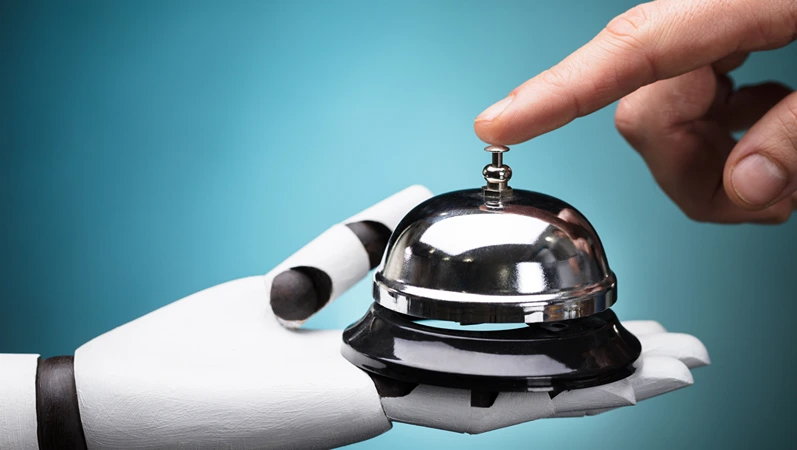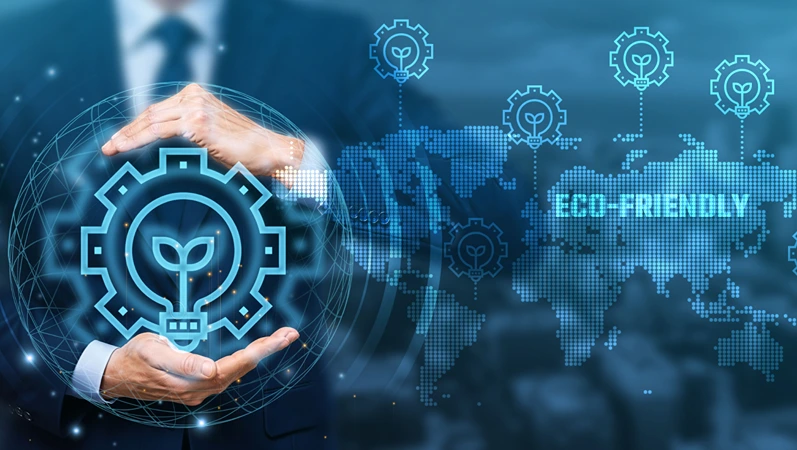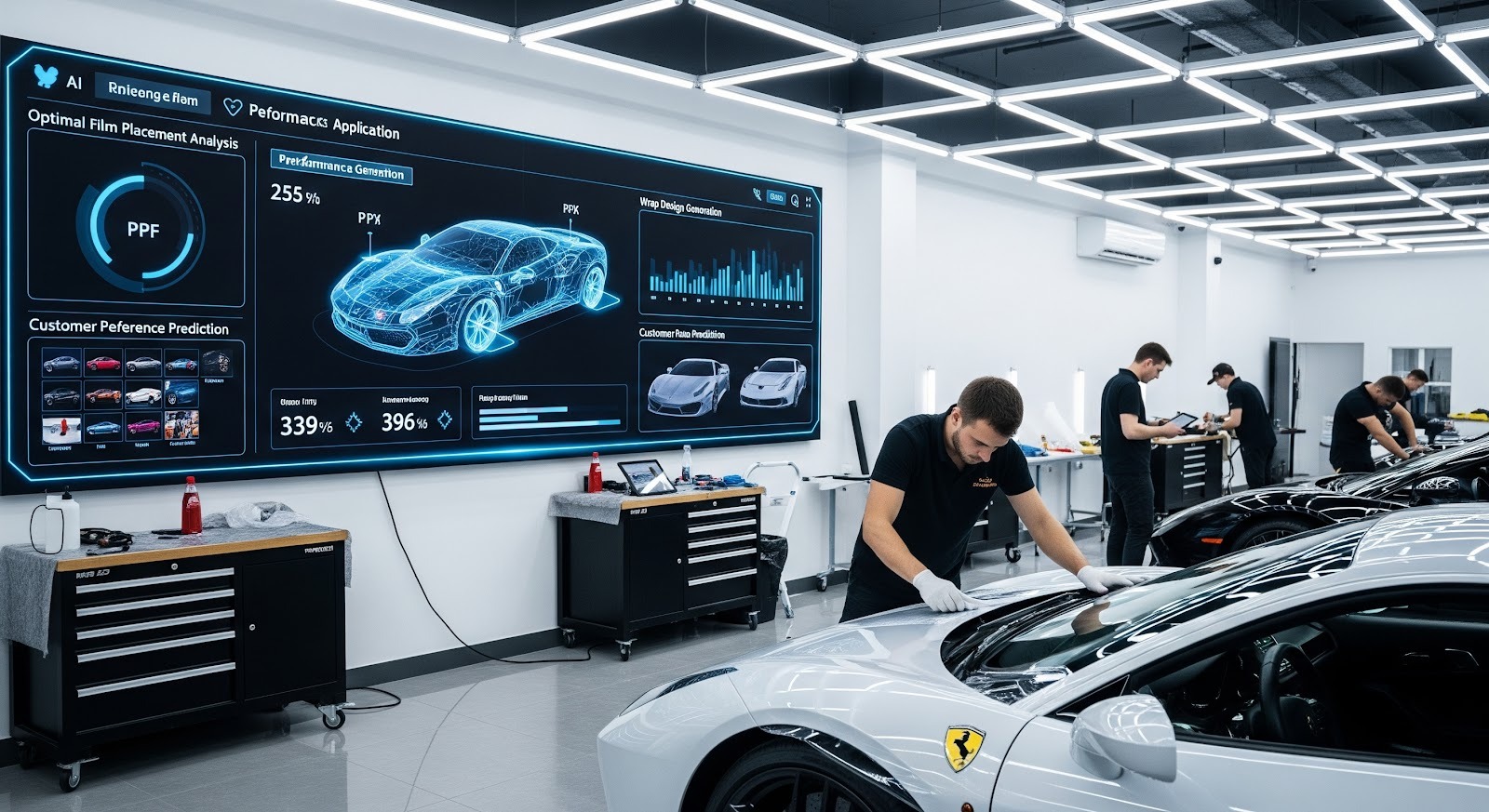
The hospitality industry thrives on one key element: delivering exceptional guest experiences. From booking to check-out, every interaction influences how guests perceive a brand. As competition intensifies, hotels and resorts are embracing technology to gain an edge. Enter AI in hospitality—a powerful force reshaping how businesses operate, engage, and evolve.
Artificial intelligence is transforming not only how hotels serve guests but also how they manage data, optimize staff performance, and predict customer needs. From smart rooms that personalize temperature and lighting to chatbots that handle booking requests, the AI in the hospitality industry is redefining what convenience and luxury truly mean.
What Is AI in Hospitality?
Artificial intelligence in hotel management refers to the use of intelligent systems and algorithms to automate and enhance operations. This includes chatbots, predictive analytics, facial recognition, voice assistants, and personalized recommendations. AI enables hotels to deliver tailored services, streamline processes, and improve decision-making.
Instead of relying solely on human intuition, hospitality businesses can now use data-driven insights to understand preferences, anticipate behavior, and create seamless guest journeys. Essentially, AI allows hotels to act faster, smarter, and more efficiently than ever before.
How Is AI Changing the Guest Experience?
Guest expectations are higher than ever, and AI is helping hotels meet them with ease. So, how is AI used in the hospitality industry?
Personalized Stays
AI helps hotels gather data about guests’ past visits, preferences, and feedback. This allows for personalized touches such as preferred room temperature, meal choices, or even favorite music. Guests feel recognized, not just accommodated, creating a deeper sense of loyalty.
24/7 Virtual Assistance
AI-powered chatbots are revolutionizing communication. Guests can inquire about room availability, amenities, or check-in times anytime without waiting for human assistance. This not only speeds up response time but also enhances convenience for global travelers in different time zones.
Smart Room Technology
Voice-controlled systems like Alexa for Hospitality or Google Assistant enable guests to adjust lighting, order room service, or request housekeeping hands-free. These AI in the hotel industry innovations elevate comfort while reducing workload for staff.
What Are the Advantages of AI in Hospitality?
The benefits of AI go far beyond automation. For hotels, it offers smarter operations, increased profits, and a deeper understanding of guest needs—all key ingredients for long-term success.
Improved Operational Efficiency
AI automates repetitive tasks such as check-ins, billing, and room assignments. This frees up staff to focus on high-value activities, such as personal interactions and problem-solving.
Enhanced Revenue Management
Through predictive analytics, hotels can analyze market trends, booking patterns, and competitor rates to set optimal pricing. This helps maximize occupancy and profit without guesswork.
Better Decision-Making
AI systems compile and interpret large volumes of data, offering insights that help managers make smarter, faster decisions. This can include staffing needs, energy usage, and customer satisfaction scores.
What Are the Common Use Cases of AI in Hospitality?

AI is being applied across nearly every area of hotel management. Understanding its most common uses can help hoteliers identify where to start and how to gain the most impact.
Chatbots and Virtual Concierges
These tools provide instant responses to guest inquiries and make recommendations for dining, entertainment, and attractions. They ensure guests receive assistance even when staff are unavailable.
Predictive Maintenance
AI systems monitor hotel equipment and alert teams before malfunctions occur. This reduces downtime and costly repairs, ensuring a smooth experience for guests.
Sentiment Analysis and Feedback Monitoring
Hotels use AI tools to analyze online reviews and social media mentions. By identifying common complaints or praises, management can adjust operations and improve service quality.
Fraud Detection and Security
Facial recognition and AI-driven security systems help verify guest identity, prevent unauthorized access, and protect sensitive data.
How Big Is the AI Market in the Hospitality Industry?
The global AI in the hospitality industry market has experienced exponential growth. According to recent studies, AI spending in the hospitality sector is projected to exceed billions of dollars within the next few years. Hotels, resorts, and travel companies are increasingly investing in technology that improves operational efficiency and enhances guest satisfaction.
This growth is driven by a combination of factors: rising traveler expectations, labor shortages, and the need for personalization. The adoption of AI is no longer a luxury but a necessity for businesses aiming to stay competitive.
What Are the Challenges of Implementing AI in Hospitality?
While AI offers remarkable potential, integrating it into hospitality operations is not without obstacles. Hotels must navigate costs, data privacy, and workforce adaptation to ensure success.
High Implementation Costs
Integrating AI systems requires significant investment in infrastructure, training, and software. Smaller hotels may find it challenging to justify the upfront costs.
Data Privacy Concerns
With more guest data being collected, protecting that information becomes essential. Hotels must comply with data protection laws and ensure their systems are secure from breaches.
Staff Resistance and Training
Employees may feel uncertain about AI taking over their tasks. Proper training and reassurance that AI supports, not replaces, human roles can ease this transition.
How Can Hotels Prepare for an AI-Driven Future?
Preparing for an AI-powered future requires strategic planning and a willingness to evolve. Hotels that adopt the right tools and training today will be the ones leading tomorrow.
Invest in Scalable Technology
Choosing the best hotel AI software for the hospitality industry ensures flexibility and adaptability. Scalable platforms like Leapify help hotels start small, automate key processes, and expand their AI capabilities as their operations grow.
Foster a Tech-Savvy Culture
Encouraging staff to embrace technology and offering ongoing training helps integrate AI smoothly into daily operations.
Prioritize Data Management
Data is the foundation of AI. Hotels should invest in secure data storage and analytics systems to fully leverage AI insights for personalized services.
How Will AI Support Sustainability in Hospitality?

Sustainability is a growing priority in hospitality, and AI is playing a major role in advancing it. By optimizing energy use and reducing waste, hotels can deliver eco-friendly experiences without compromising comfort.
Energy Management
AI monitors energy use across lighting, heating, and cooling systems. This helps hotels reduce waste, achieve sustainability goals, and lower utility costs.
Smart Waste Reduction
AI-powered systems can analyze consumption patterns and optimize inventory, reducing food waste and unnecessary purchases.
Sustainable Travel Experiences
AI can recommend eco-friendly activities, transportation options, and sustainability-focused partners, aligning with travelers’ growing interest in responsible tourism.
AI in Hospitality FAQs
AI is shaping the way the hospitality industry operates. Here are some quick answers to common questions.
Will AI replace hospitality jobs completely?
No. AI is meant to enhance human capabilities, not eliminate them. Staff can focus more on personalized service while AI handles repetitive tasks.
How big is AI in the hospitality market today?
The market is expanding rapidly, with investments projected to rise as hotels continue to integrate AI into operations, marketing, and guest services.
What is the downside of AI in the hospitality industry?
The primary downsides include high setup costs, potential data privacy risks, and the need for constant updates and staff training.
What is the best AI for the hospitality industry?
The best hotel AI software for the hospitality industry depends on a property’s specific needs. Solutions like AI-powered CRMs, chatbots, and revenue management tools are among the most effective.
How can small hotels or restaurants start adopting AI?
They can begin with simple systems such as chatbot integrations or booking assistants. These affordable tools deliver immediate value without requiring full-scale infrastructure changes.
Preparing for the Next Era of Hospitality

Artificial intelligence is redefining how hotels interact with guests, optimize operations, and build brand loyalty. As AI in the hotel industry continues to evolve, its impact will only deepen—driving efficiency, personalization, and sustainability.
Adopting an AI platform for hospitality is not just about keeping up with technology, but also about future-proofing business success. The future of hospitality belongs to those ready to innovate, and AI is the key that unlocks it. With innovative solutions like Leapify, hotels can integrate smart systems that learn, adapt, and grow alongside their brand. Try free today!



